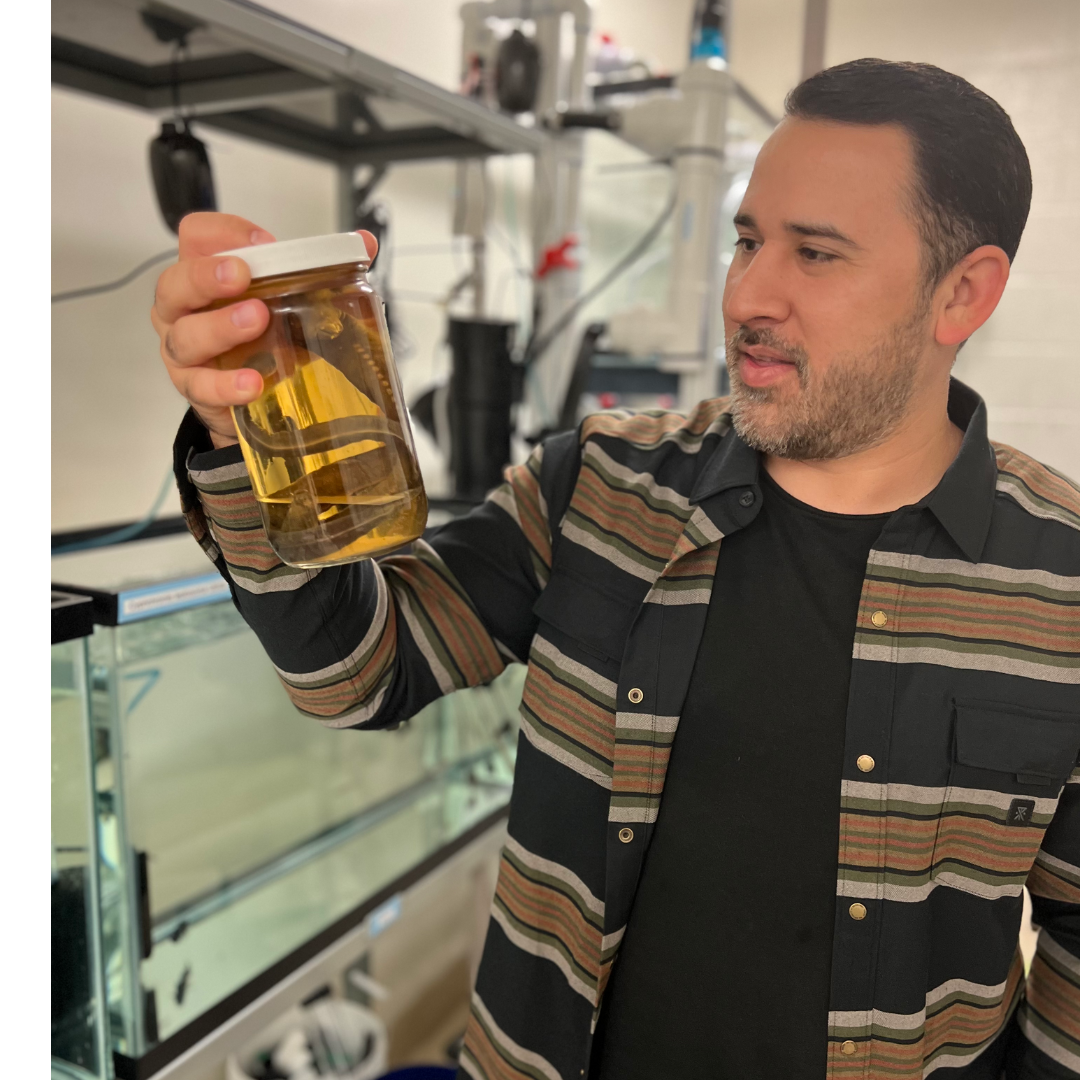
Irvine, Calif., July 17, 2024 — A new study published in The American Naturalist by Assistant Professor Christopher Martinez at the UC Irvine Charlie Dunlop School of Biological Sciences and his colleagues reveals significant findings about the evolutionary processes driving diversity in cichlid fishes. The paper, titled “Replicated Functional Evolution in Cichlid Adaptive Radiations,” provides new insights into how these fish species have evolved their unique feeding mechanisms across different environments.
The study addresses how species adapt and diversify over time in response to ecological opportunities. Adaptive radiations, where a single lineage rapidly evolves into multiple species in the presence of ecological opportunity, offer a unique perspective on these processes. Cichlid fishes, particularly those in the African Great Lakes and the Neotropics, are remarkable examples of this phenomenon.
Professor Martinez explains, “Adaptive radiations provide opportunities to observe how diversity accumulates across related organisms, and cichlid fishes comprise some of the most celebrated examples. We compiled arguably the largest dataset of comparative motions for vertebrates — 1,110 high-speed videos of prey capture in 300 cichlid species — to contrast the functional and morphological diversification of feeding systems across four major replicated radiations.”
The study found that the three African Great Lake radiations displayed a nested pattern of functional and morphological diversity, with younger radiations being contained within the older ones. In contrast, the Neotropical radiation showed lower functional diversity than the African Lake Tanganyika radiation, despite being much older. This supports the idea that the African lake radiations have experienced exceptional levels of diversification, influenced by both time and geographic context.
This research has potential applications in understanding biodiversity and the mechanisms of evolution. By shedding light on how functional traits evolve and diversify, it can inform conservation strategies for preserving biodiversity. Moreover, it underscores the importance of ecological and evolutionary research in contributing to our understanding of life’s diversity and complexity.
Professor Martinez emphasizes the broader implications: “Our study supports long-held impressions of African lake radiations supporting exceptional levels of diversification and highlights how time and geographic context shape both the magnitude and pattern of functional diversity.”
About the University of California, Irvine Charlie Dunlop School of Biological Sciences: Recognized for its pioneering research and academic excellence, the Charlie Dunlop School of Biological Sciences plays a crucial role in the university’s status among the nation’s top 10 public universities, as ranked by U.S. News & World Report. It offers a broad spectrum of degree programs in the biological sciences, fostering innovation and preparing students for leadership in research, education, medicine and industry. Nestled in a globally acclaimed and economically vibrant community, the school contributes to the university’s impact as Orange County’s largest employer and a significant economic contributor. Through its commitment to exploring life’s complexities, the Dunlop School embodies the UCI legacy of innovation and societal impact. For more on the Charlie Dunlop School of Biological Sciences, visit https://www.bio.uci.edu/.
